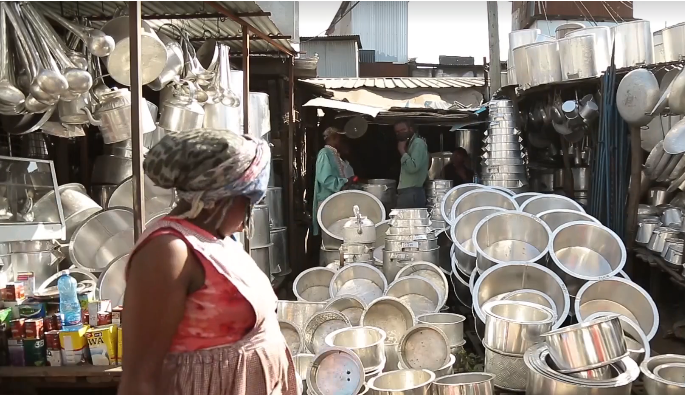Chinese imports edging out Kenya’s local products

Kenyan artisans say they are losing the
market for their products to Chinese imports.
According to the craftspersons, the high
quality and lower prices of Chinese-made goods put them at a disadvantage.
Jua Kali, popularly known in Kenya as
artisanal work such as toolmaking or textiles, has been a livelihood for more
than 7,000 craftspersons at an open market in Kenya's capital for decades.
Njoroge Macharia has been making charcoal
stoves, commonly known as jikos in Swahili, for four decades.
He says imports from China have edged out his
business. Jikos from China is affecting us, he says, because we used to sell a
lot before they started bringing them here.
He said, “Now we don't sell as many as we
used to. They are cheaper than ours, but those from China are not better than
ours. Ours are really good.”
National data show that Kenya spent nearly $4
billion (Ksh 456 billion) on imports from China in 2021.
Kenya sources a vast array of consumer and
capital products from China while exporting $1.5 billion (Ksh 175 billion)
worth of goods to the Asian market.
Traders like Magdalen Vivi, who sells
imported kitchenware, say customers demand modernized products like nonstick
cooking pots, commonly known as sufuria in Swahili.
"If you suggest the aluminium or the
stainless steel, they keep on asking for the nonstick." Vivi said,
"(I don’t understand why) they prefer to have the nonstick over the ones
that are locally produced in Kenya because for me, I have not seen any nonstick
sufurias made in Kenya."
An African Union study on international trade
finds that the African continent is the largest market for Chinese goods. Some
Kenyan consumers prefer a wide variety of cheap products. Mary Wambui is one
such buyer.
"There is always variety," Wambui
said. "All the time, you get new products, and they have different types.
You don't get the same ones all the time. Every time you come, there is
something new that has come up."
Wohoro Ndhoho, an economist in Kenya, says a
lack of strong automation and technology in Kenyan manufacturing means most
products made locally are by craftspeople, not machines.
''The Jua Kali sector in Kenya has very much
been human-power-driven rather than machine-driven," Ndhoho said.
"So, you find that inevitably means that
when things are made in China, they can be made in bulk. Which, if today you go
to Gikomba, they still beat those karais, for making mandazi (fried bread) with
(their) hands. So, for every one hour, they make one, a machine can make
1,000."
The Kenya National Federation of Jua Kali
Associations told VOA that imports from China have cost them the regional
market. Engineer Charles Kalomba is the secretary-general of the artisans
federation.
"The energy-saving jikos, which have got
liners, clay liners, and they are just fabricated metal and clay liners.,"
Kalomba said. "And we used to produce a lot of them for the East African
market. Today, there is a lot of influx of the same into the market."
Data from the Kenya Export Promotion and
Branding Agency show that South Africa is the only African country among the
top 25 nations exporting to China.
Kenyan authorities are banking on trade
agreements to sell more to China. The agency's chief executive officer, Wilfred
Marube, explains.
"There was a bilateral agreement in
January where some of the areas were agreed upon," Marube said "And
also, a joint committee established was to basically ask the question, ‘How
does the Chinese government work together to increase market access for Kenyan
products, especially agricultural products?’"
Tiku Shah is profiting from China's massive
market. Shah exports up to 100 containers of frozen avocados annually to more
than 1.4 billion people.
"Now, we have avocados, but it's got to
be very high quality, very big volumes," Shah said. "And a lot of us
are not ready for that scale of business. It's a big business on a big scale.
It requires a lot of investment, and it requires a very dedicated market
focus."
China ranked 11th among Kenya's top export
destinations and accounted for 2.3% of the total exports in 2020, according to
national data.
Want to send us a story? SMS to 25170 or WhatsApp 0743570000 or Submit on Citizen Digital or email wananchi@royalmedia.co.ke
Comments
No comments yet.


Leave a Comment